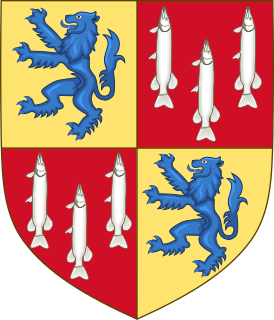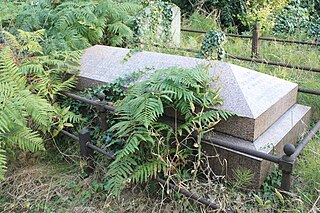Related Research Articles
Members of Parliament (MPs) sitting in the House of Commons in the United Kingdom are not permitted to resign their seats. To circumvent this prohibition, MPs who wish to step down are instead appointed to an "office of profit under the Crown", which disqualifies them from sitting in Parliament. For this purpose, a legal fiction is maintained where two unpaid offices are considered to be offices of profit: Steward and Bailiff of the Chiltern Hundreds, and Steward and Bailiff of the Manor of Northstead. Although the House of Commons Disqualification Act 1975 lists hundreds of offices that are disqualifying, no MP has lost their seat by being appointed to an actual office since 1981, when Thomas Williams became a judge.
The Manor of Northstead is a former medieval estate in North Yorkshire, England. The manor house no longer exists, and the land has since been redeveloped and forms part of modern-day Scarborough, in the area of Peasholm Park and Scarborough Open Air Theatre. The ancient title of the Crown Steward and Bailiff of the Manor of Northstead persisted beyond the manor, however, being used since the 19th century as a sinecure post which plays a role in the procedure for effecting resignation from the British House of Commons.

Henry Percy, 3rd Earl of Northumberland, was an English magnate.
The Chiltern Hundreds is an ancient administrative area in Buckinghamshire, England, composed of three "hundreds" and lying partially within the Chiltern Hills. "Taking the Chiltern Hundreds" refers to the legal fiction used to resign from the House of Commons. Since Members of Parliament are not permitted to resign, they are instead appointed to an "office of profit under the Crown", which requires MPs to vacate their seats. The ancient office of Crown Steward and Bailiff for the Chiltern Hundreds, having been reduced to a mere sinecure by the 17th century, was first used by John Pitt in 1751 to vacate his seat in the House of Commons. Other titles were also later used for the same purpose, but only the Chiltern Hundreds and the Crown Steward and Bailiff of the Manor of Northstead are still in use.

Sir John Scott of Scot's Hall in Smeeth was a Kent landowner, and committed supporter of the House of York. Among other offices, he served as Comptroller of the Household to Edward IV, and lieutenant to the Lord Warden of the Cinque Ports.

Poynings is a village and civil parish in the Mid Sussex District of West Sussex, England. The parish lies wholly with the South Downs National Park. To its south is Brighton and Hove, to its west is the Fulking parish, to its east is the Newtimber parish and to its north is Albourne parish. The planning authority for Poynings is the South Downs National Park Authority (SDNPA), the statutory planning authority for the National Park area.
William Bardolf, 4th Baron Bardolf and 3rd Baron Damory of Wormegay, Norfolk, was an extensive landowner in Norfolk, Lincolnshire, Suffolk and Surrey. He was the son of John Bardolf, 3rd Baron Bardolf and Elizabeth Damory, suo jure 2nd Baroness Damory. His maternal grandparents were Sir Roger Damory, Lord Damory and Lady Elizabeth de Clare, a granddaughter of King Edward I. In 1372, Bardolf had livery of his lands from the Crown - See.

Captain William Stephen Sanders was a British Labour Party politician.

William James Garnett was a British Conservative Party politician from Bleasdale in Lancashire. He sat in the House of Commons from 1857 to 1864.
High steward is an honorary title bestowed by the councils or charter trustees of certain towns and cities in England. Originally a judicial office with considerable local powers, by the 17th century it had declined to a largely ceremonial role. The title is usually awarded for life, and in some cases has become associated with a particular peerage title. As of 2007 twenty-four communities have the right to confer the status of high steward, although the office is in abeyance in a number of these.
Guildable Manor is a Court Leet in Southwark under the authority of the City of London, along with the King's Manor, Southwark, and the Great Liberty. The name of 'Guildable' first recorded in 1377 refers to the collection of taxes there and was adopted to distinguish this from the other manors of the Southwark area. Its legal title, according to a Royal charter granted to the City by King Edward III in 1327, is 'the ville of Southwark' i.e. 'ville = 'town'; in the more substantive charter of Edward VI it is designated 'The Town and Borough of Southwark' as is stated on its Seal. It is a preserved limited jurisdiction under the Administration of Justice Act 1977. Although neither a guild nor a livery company, the Guildable Manor does have a permanent organization, consisting of Officers and Jurors.
References
- ↑ Ian Crofton, John Ayto (2005). Brewer's Britain and Ireland. Weidenfeld & Nicolson . via Credo Reference. ISBN 0-304-35385-X . Retrieved 13 September 2012.
- ↑ "No. 20019". The London Gazette . 17 September 1841. p. 2317.
- ↑ "No. 20207". The London Gazette . 24 March 1843. p. 988.